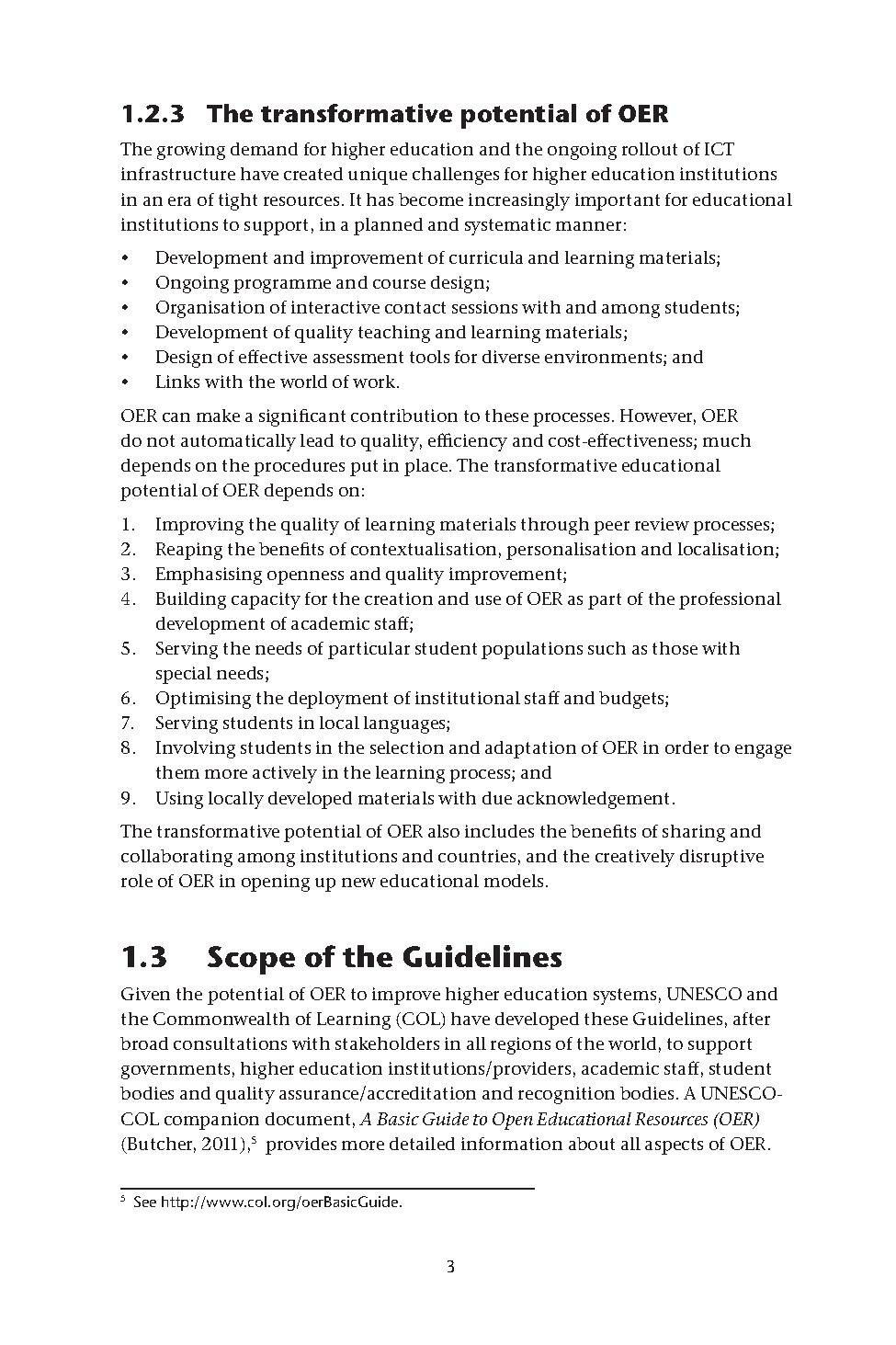1.2.3 The transformative potential of OER
The growing demand for higher education and the ongoing rollout of ICT infrastructure have created unique challenges for higher education institutions in an era of tight resources. It has become increasingly important for educational institutions to support, in a planned and systematic manner:
- Development and improvement of curricula and learning materials;
- Ongoing programme and course design;
- Organisation of interactive contact sessions with and among students;
- Development of quality teaching and learning materials;
- Design of effective assessment tools for diverse environments; and
- Links with the world of work.
OER can make a significant contribution to these processes. However, OER do not automatically lead to quality, efficiency and cost-effectiveness; much depends on the procedures put in place. The transformative educational potential of OER depends on:
- Improving the quality of learning materials through peer review processes;
- Reaping the benefits of contextualisation, personalisation and localisation;
- Emphasising openness and quality improvement;
- Building capacity for the creation and use of OER as part of the professional development of academic staff;
- Serving the needs of particular student populations such as those with special needs;
- Optimising the deployment of institutional staff and budgets;
- Serving students in local languages;
- Involving students in the selection and adaptation of OER in order to engage them more actively in the learning process; and
- Using locally developed materials with due acknowledgement.
The transformative potential of OER also includes the benefits of sharing and collaborating among institutions and countries, and the creatively disruptive role of OER in opening up new educational models.
1.3 Scope of the Guidelines
Given the potential of OER to improve higher education systems, UNESCO and the Commonwealth of Learning (COL) have developed these Guidelines, after broad consultations with stakeholders in all regions of the world, to support governments, higher education institutions/providers, academic staff, student bodies and quality assurance/accreditation and recognition bodies. A UNESCO-COL companion document, A Basic Guide to Open Educational Resources (OER) (Butcher, 2011),[1] provides more detailed information about all aspects of OER.
3
